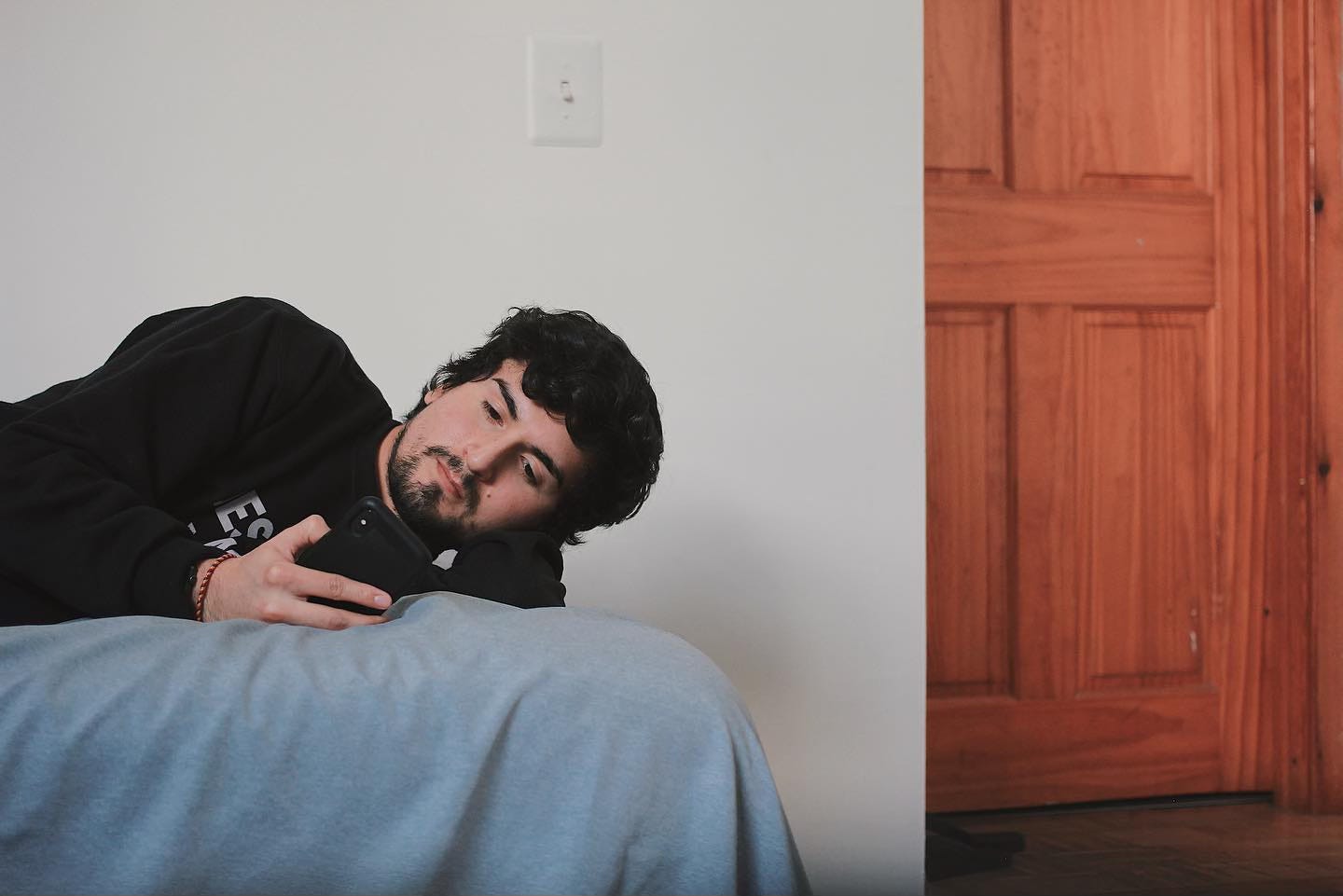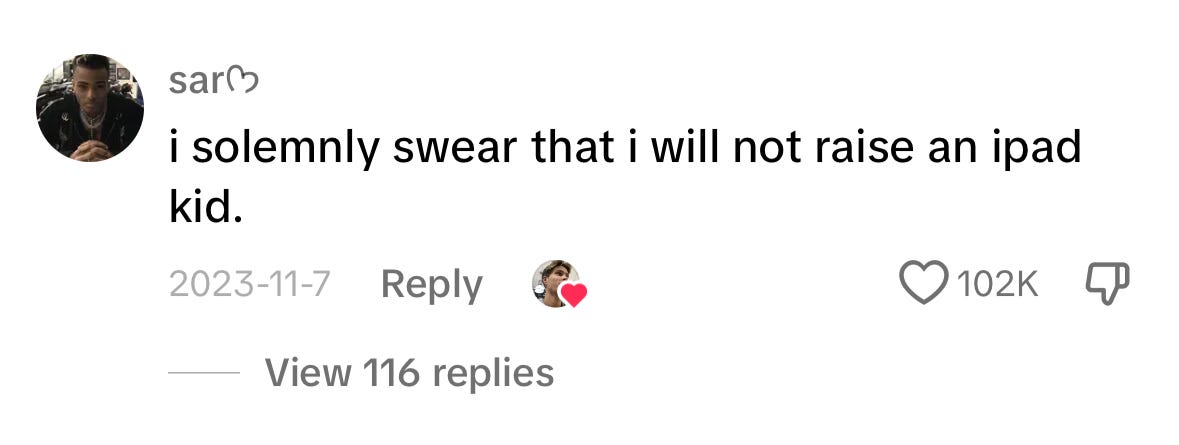Why I Needed to Heal my Attention Span
Feeling behind in life, taking back control of my time, and how our generation will confront its unexamined relationship to social media once we start having kids.
I’ve chronically felt behind in life since I turned 22 five years ago.
My unhealthy way to cope is to read the worst posts in the r/personalfinance subreddit to remind myself that I’m not that behind. This reveals a concerning ability to be cruel, whereby I validate my own circumstances by comparing them to less fortunate ones.
It’s a victimless cruelty that we’ve all endorsed with the popular consolation: at least you’re not in a worse scenario that some other human is dealing with.
Coping with comparison cuts both ways, though. I often come across posts from people my age who are much further along and I feel insecure again.
I’m over it. This restless tug between feeling hurried and coping with comparison leaves me either consoled by a perverted comfort in others' misfortune or discouraged by misleading pictures of others' success.
My hurriedness stems from wanting to achieve more but never having enough time, often lost to social media. On my worst days, I’ve spent 96 minutes on TikTok, which was enough to drain time meant for enriching my life beyond work.
Why this matters: entering a flow state takes 15 minutes, and refocusing after a distraction often requires 20 minutes. A brief 5-minute scroll costs an additional 20 minutes to regain focus. Repeat this cycle just once, and you've lost nearly an hour to regaining concentration.
In the last three months, I’ve been slowly healing my attention span by overhauling my relationship to these apps. The immediate benefit has been regaining control of my time, but I didn’t expect to get better at thinking with clarity and depth.
It’s a relief to experience long, uninterrupted moments of stillness without the urge to be somewhere else. This is where I get to ponder, grieve, create—to simply be human.

To be honest, in my weaker moments I still struggle with feeling behind, but it makes one helluva difference to have a grip on my attention span. Because at least I’m as present with my pain as I am with my joy. These are the makings of a full life that slowly collects time, instead of spending it in a hurry. No more comparison, no more numbing with endless video feeds. I believe this is the better way to cope with my twenty-something angst. I only wish I realized it sooner.
But how was I supposed to? I was unknowingly dealing with a low-grade addiction and needed to reach my personal breaking point to get clean.
I think everyone in our generation will reach a similar breaking point, too. Some will publicly talk about it on the very same apps. Others will decide to go analog, find a middle ground, and yet others won’t even consider it—they’ll just keep scrolling away. And I don’t blame them: we’re Paleolithic creatures with “god-like technology", as E.O. Wilson would put it.
I think we’re moving toward a societal split based on our digital habits:
The mindful-scrollers: selective users who minimize tech's negative impacts, embracing Cal Newport’s concept of techno-selectionism.
The never-scrollers: they’re completely off smartphones and social media.
The always-scrollers: they’re as addicted as the apps can make them.
Each lifestyle will be offensive to the others because of how it’ll shape the way we raise our kids. We’re already seeing it play out in #genalpha, where Gen Z bashes and satirizes Millennials for raising up a generation of bad-mannered, illiterate children with zero attention spans. The comment sections on these videos reveal a shared commitment to not make the same mistakes with our children.
Today’s emerging moral panic is fixated on kids’ relationship to smart devices. We’re beginning to organize ourselves into different cohorts, each with its own sources to justify our perspectives. Expect to see Jonathan Haidt’s recent book, The Anxious Generation, on the nightstand of every mindful-scroller parent in 5 years. #homestead will find its way to offline channels for the never-scrollers. And imagine the flurry of videos from always-scroller parents publicly justifying their choices—it’ll be frequent, angry, and sincere.
I think I’m headed for the mindful scroller camp. I'm not just regaining control over my time and attention—I'm also aligning my digital habits with my true priorities.
While I'm still dealing with feeling perpetually behind in life, grounding myself in the present rather than getting lost in addictive rabbit holes is just what I need to cope in a healthier way. I don’t need to give my attention to an algorithm that’ll entertain me to death, without regard for my mental health.
I’m not saying social media is inherently bad, but its unregulated and polluted state requires a discerning eye. My goal is not to shun it entirely but to engage with it on my terms, so that it enriches my life. By being selective, I want to get a better deal for my time.
Food for thought
Our shared stake in this conversation is our time, so I encourage you to consider these questions, whether or not your phone plays a significant role in how you move through life.
If you had one year left to live, what would you spend most of your time doing?
What’s one thing you can do this week to start doing that?






